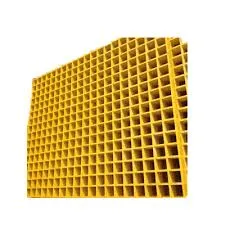
-
 Afrikaans
Afrikaans -
 Albanian
Albanian -
 Amharic
Amharic -
 Arabic
Arabic -
 Armenian
Armenian -
 Azerbaijani
Azerbaijani -
 Basque
Basque -
 Belarusian
Belarusian -
 Bengali
Bengali -
 Bosnian
Bosnian -
 Bulgarian
Bulgarian -
 Catalan
Catalan -
 Cebuano
Cebuano -
 China
China -
 China (Taiwan)
China (Taiwan) -
 Corsican
Corsican -
 Croatian
Croatian -
 Czech
Czech -
 Danish
Danish -
 Dutch
Dutch -
 English
English -
 Esperanto
Esperanto -
 Estonian
Estonian -
 Finnish
Finnish -
 French
French -
 Frisian
Frisian -
 Galician
Galician -
 Georgian
Georgian -
 German
German -
 Greek
Greek -
 Gujarati
Gujarati -
 Haitian Creole
Haitian Creole -
 hausa
hausa -
 hawaiian
hawaiian -
 Hebrew
Hebrew -
 Hindi
Hindi -
 Miao
Miao -
 Hungarian
Hungarian -
 Icelandic
Icelandic -
 igbo
igbo -
 Indonesian
Indonesian -
 irish
irish -
 Italian
Italian -
 Japanese
Japanese -
 Javanese
Javanese -
 Kannada
Kannada -
 kazakh
kazakh -
 Khmer
Khmer -
 Rwandese
Rwandese -
 Korean
Korean -
 Kurdish
Kurdish -
 Kyrgyz
Kyrgyz -
 Lao
Lao -
 Latin
Latin -
 Latvian
Latvian -
 Lithuanian
Lithuanian -
 Luxembourgish
Luxembourgish -
 Macedonian
Macedonian -
 Malgashi
Malgashi -
 Malay
Malay -
 Malayalam
Malayalam -
 Maltese
Maltese -
 Maori
Maori -
 Marathi
Marathi -
 Mongolian
Mongolian -
 Myanmar
Myanmar -
 Nepali
Nepali -
 Norwegian
Norwegian -
 Norwegian
Norwegian -
 Occitan
Occitan -
 Pashto
Pashto -
 Persian
Persian -
 Polish
Polish -
 Portuguese
Portuguese -
 Punjabi
Punjabi -
 Romanian
Romanian -
 Russian
Russian -
 Samoan
Samoan -
 Scottish Gaelic
Scottish Gaelic -
 Serbian
Serbian -
 Sesotho
Sesotho -
 Shona
Shona -
 Sindhi
Sindhi -
 Sinhala
Sinhala -
 Slovak
Slovak -
 Slovenian
Slovenian -
 Somali
Somali -
 Spanish
Spanish -
 Sundanese
Sundanese -
 Swahili
Swahili -
 Swedish
Swedish -
 Tagalog
Tagalog -
 Tajik
Tajik -
 Tamil
Tamil -
 Tatar
Tatar -
 Telugu
Telugu -
 Thai
Thai -
 Turkish
Turkish -
 Turkmen
Turkmen -
 Ukrainian
Ukrainian -
 Urdu
Urdu -
 Uighur
Uighur -
 Uzbek
Uzbek -
 Vietnamese
Vietnamese -
 Welsh
Welsh -
 Bantu
Bantu -
 Yiddish
Yiddish -
 Yoruba
Yoruba -
 Zulu
Zulu
corrosion resistant fiberglass
Corrosion Resistant Fiberglass A Revolutionary Material for Durability and Sustainability
In an era where sustainability and durability are paramount, corrosion-resistant fiberglass emerges as a revolutionary material, catering to diverse industries. Its unique properties make it an ideal choice for applications ranging from construction to automotive, offering long-lasting performance even in harsh environments.
Corrosion Resistant Fiberglass A Revolutionary Material for Durability and Sustainability
One of the primary advantages of corrosion-resistant fiberglass is its durability. Unlike metals, which can corrode over time, fiberglass can withstand extreme temperatures and varying chemical compositions. This resilience makes it particularly useful in industries like chemical processing, wastewater treatment, and marine applications, where materials are routinely exposed to corrosive substances. For instance, fiberglass-reinforced composites are widely used in tanks, pipes, and structural components, ensuring longevity and reliability.
corrosion resistant fiberglass

Another significant benefit of corrosion-resistant fiberglass is its lightweight nature. Compared to metals, fiberglass is considerably lighter, which reduces transportation costs and simplifies installation processes. This attribute is particularly beneficial in the construction sector, where reducing load-bearing requirements can lead to more cost-effective solutions. Additionally, the light weight of fiberglass allows for innovative designs and applications that might be impractical with heavier materials.
Environmental sustainability is also a vital aspect of fiberglass. As industries increasingly prioritize eco-friendly practices, corrosion-resistant fiberglass stands out due to its recyclability and low environmental impact during production. Unlike traditional materials that may involve extensive mining and processing, fiberglass can be manufactured using recycled glass and plastic, minimizing the carbon footprint associated with its production. Furthermore, the longevity of fiberglass components contributes to waste reduction, as fewer replacements are needed over time.
The versatility of corrosion-resistant fiberglass is another key feature that enhances its appeal. It can be molded into various shapes and sizes, accommodating specific project requirements while maintaining structural integrity. This flexibility allows for innovative applications, such as in the construction of bridges, electrical enclosures, and custom industrial equipment.
In conclusion, corrosion-resistant fiberglass represents a significant advancement in material science, combining durability, lightweight characteristics, and environmental sustainability. As industries continue to seek reliable and eco-friendly solutions, the adoption of fiberglass is likely to increase, paving the way for innovative applications and enhanced performance across various sectors. Its resistance to corrosion makes it a formidable competitor against traditional materials, ensuring that infrastructure and components can withstand the test of time. As we move toward a more sustainable future, the role of corrosion-resistant fiberglass will undoubtedly become increasingly prominent in ensuring lasting durability and resilience.









